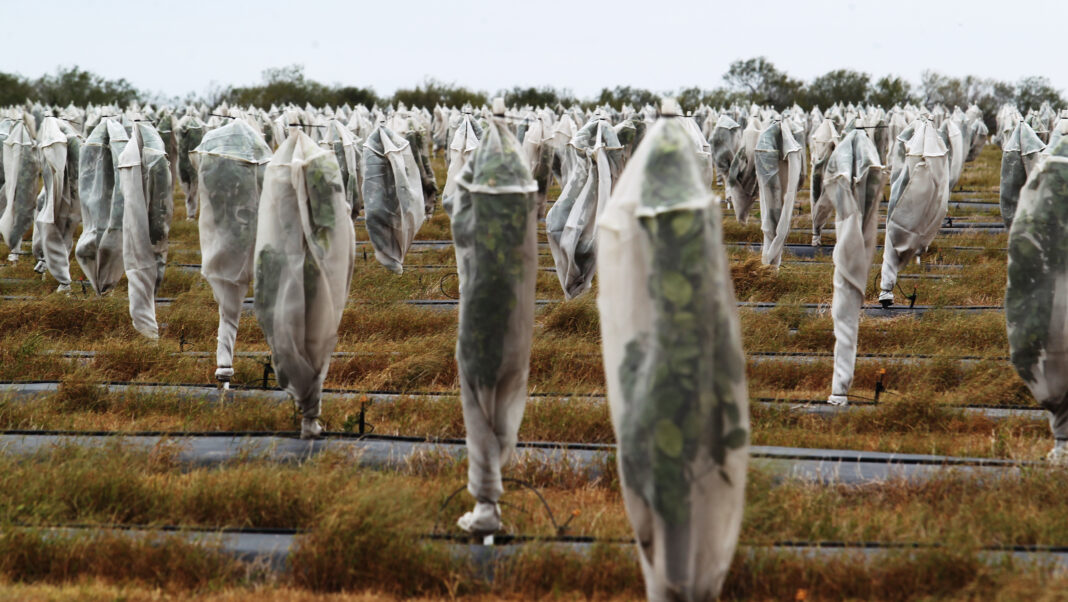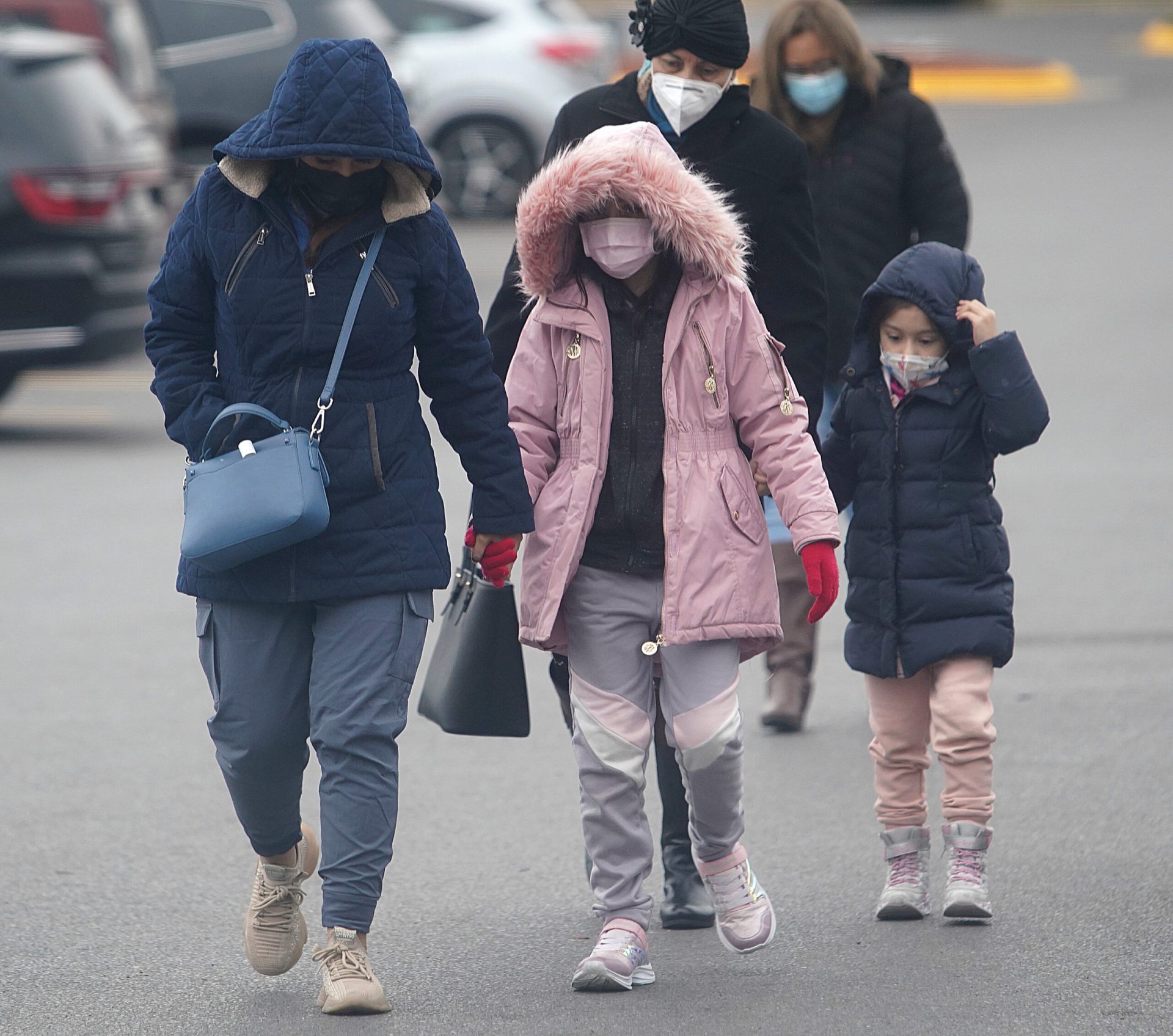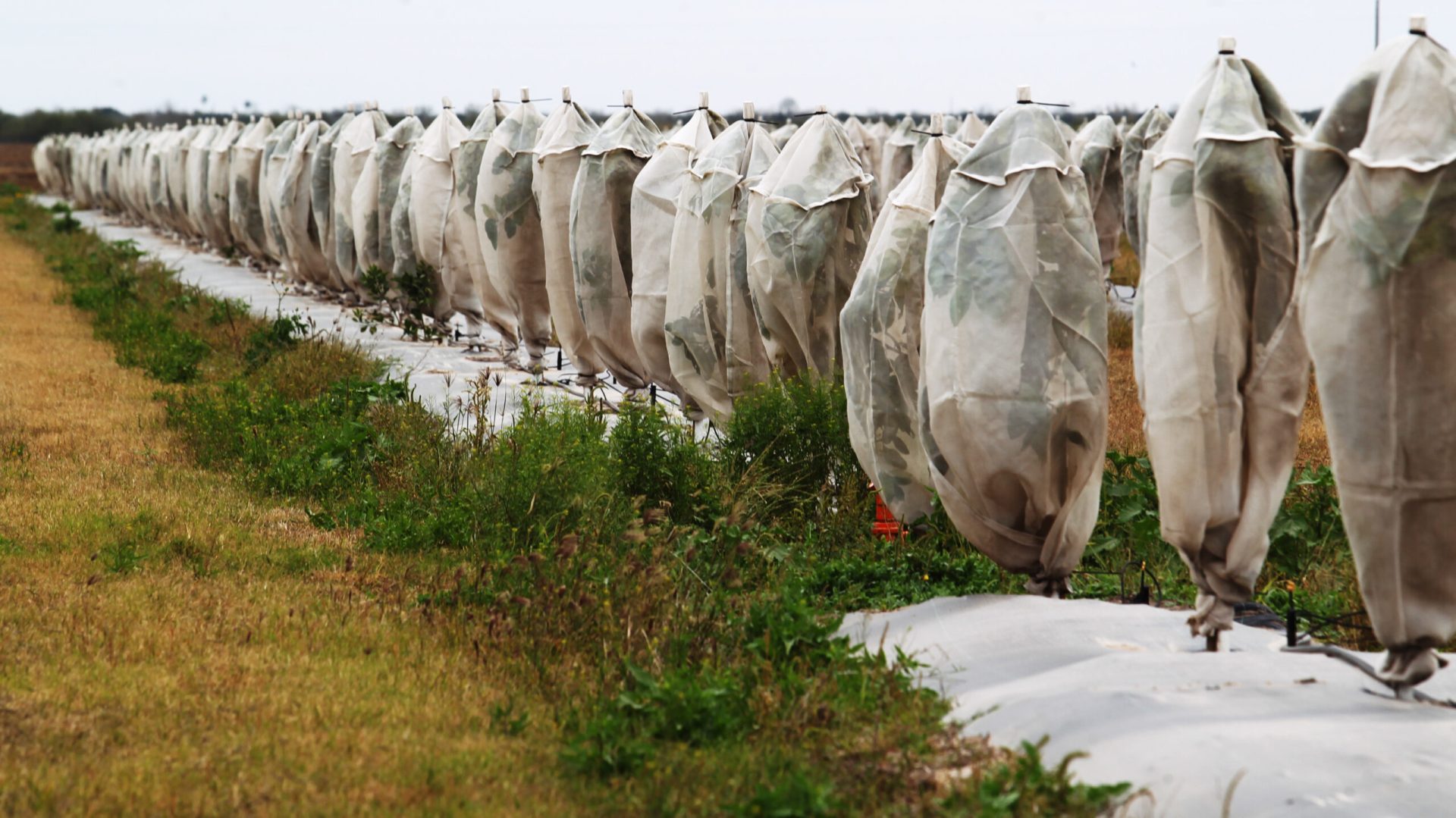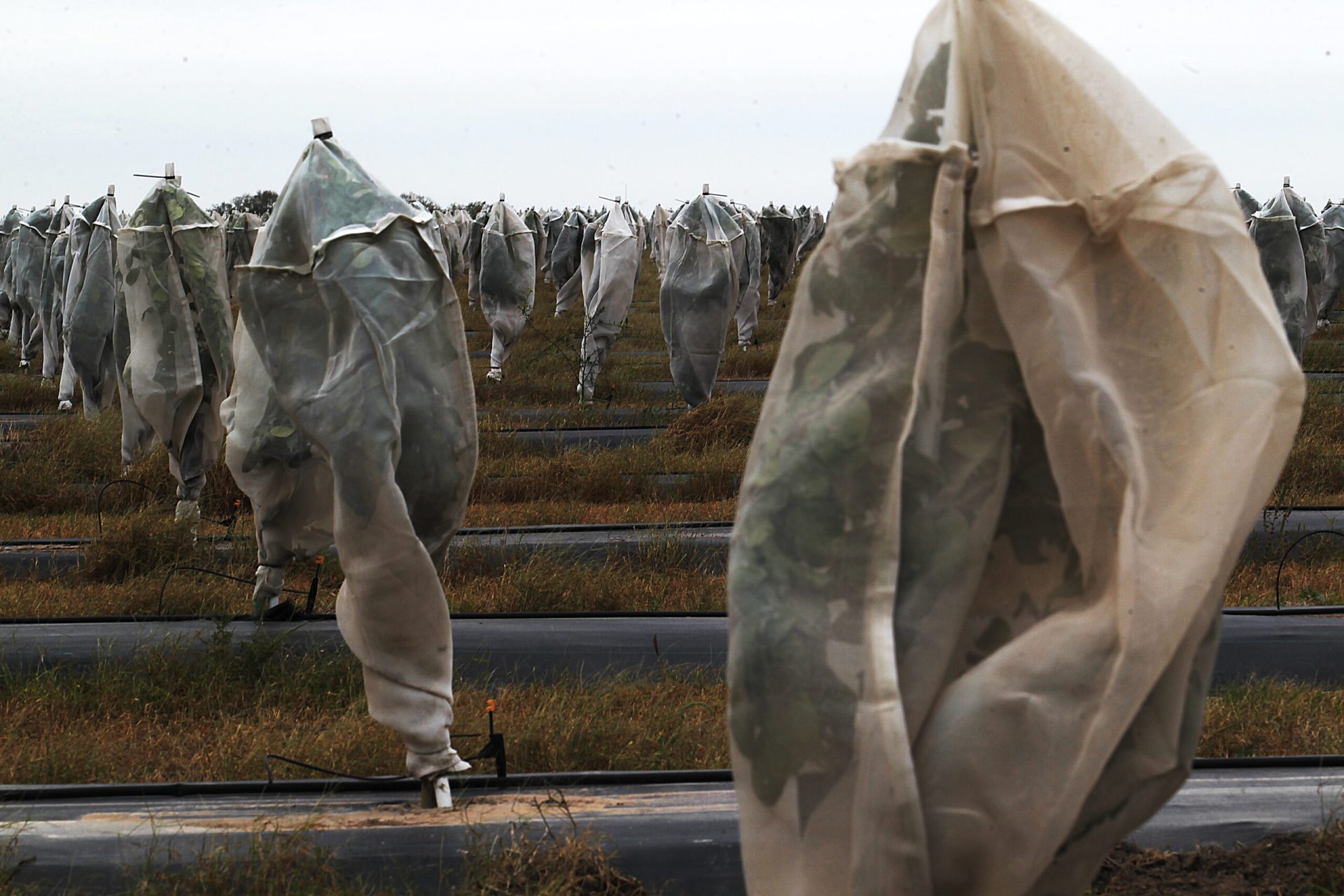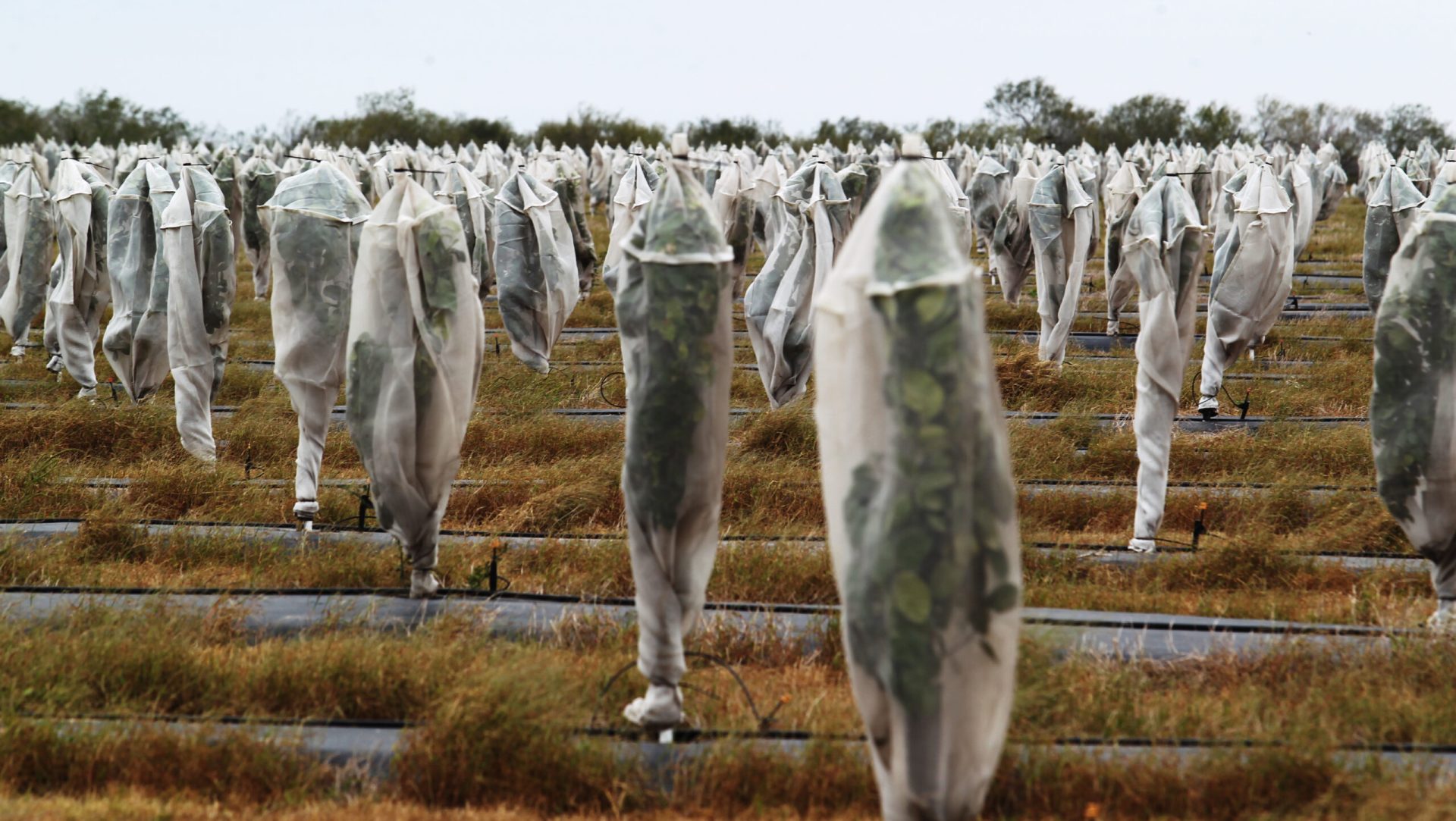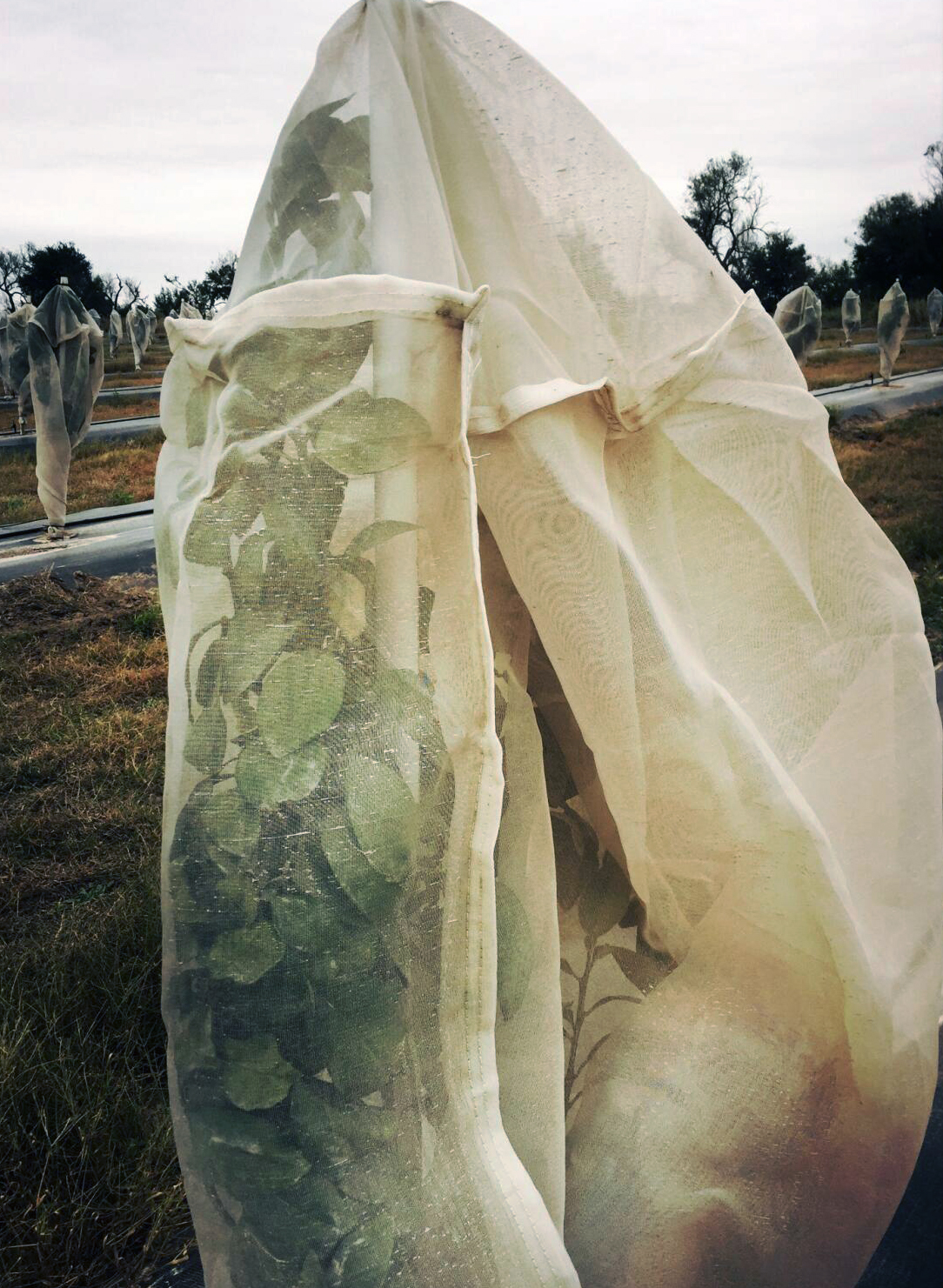With last year’s winter freeze fresh on the minds of Rio Grande Valley residents, Hidalgo County Judge Richard F. Cortez is reminding the public to take precautions for what may be a severe weather weekend, and citrus and vegetable growers are doing their part to protect the crops from the devastation incurred in 2021.
Temperatures were forecast as of Thursday afternoon to dip into the low 30s overnight and into Friday morning, with feels-like conditions even lower.
Due to the potential of below freezing conditions, local governments, agencies and other institutions moved quickly Thursday to help residents take cover from the cold.
Warming shelters opened overnight in the cities of Pharr, Mission and Edinburg and were expected to remain operational until Friday morning.
The Hidalgo County Community Service Agency is distributing space heaters to qualifying households, which the CSA identified as residences with people 60 and older, children 5 and younger, and people with disabilities.
To apply, visit www.hidalgocsa.org and provide your most recent utility bill, proof of income or benefits, identification and proof of residency for every household member.
County offices will also be delayed until 10 a.m. Friday. The city of Mission announced via email Thursday that it is doing the same.
Valley schools announced delays and cancellations for Friday. Visit www.myrgv.com for a full list of these schools and to stay up-to-date with any changes.
The COVID-19 drive-thru testing sites operated by UT Health RGV in Edinburg and Brownsville will be closed through the weekend and reopening Monday. According to a UTRGV news release, people who made appointments for Friday were being contacted Thursday for rescheduling.
Road crews have also been treating roadways for icy conditions, and motorists are being asked to drive slowly and be aware of work zones, lane closures and alternative routes.
On Thursday, Cortez said that caring for the vulnerable has been chief among the concerns in anticipation of freezing temperatures.
“If you have elderly people or elderly neighbors … look after them. Make sure that someone is there to take care of them, in case something bad happens,” Cortez said after reminding that information on resources and tips available to residents can be found on the county’s social media pages, namely Twitter and Facebook.
Considering the state’s catastrophic power grid failure during last February’s freeze — leading to what the National Weather Service termed a “billions dollar disaster” that claimed crops, infrastructure and property damage, as well as loss of life — the county judge is hopeful that there will not be a repeat of 2021.
Cortez said he hopes actions taken by the governor and ERCOT following last year’s power outages will prove effective.
In the meantime, and in addition to calling on residents to take care of their pets and plants, he cautioned residents to have contingency plans if there are widespread power outages.
“I’ll give you an example if they’re under medication or drugs — in inclement weather sometimes it’s difficult to do normal things we can do in normal weather,” Cortez added. “… Have all your necessities and medication. Make sure your primary source of water going to your home is protected.”
AEP Texas said in a news release Thursday that it’s preparing for the potential of severe weather with its districts on alert and crews on standby.
“Business partners will be available to supplement our (workforce) needs. Storerooms are working to make sure replacement equipment is available. We also are reviewing field projects to determine if those projects need to be postponed for now,” AEP Texas said in the release. “We are identifying equipment that is out of service for maintenance that can be placed back in service.”
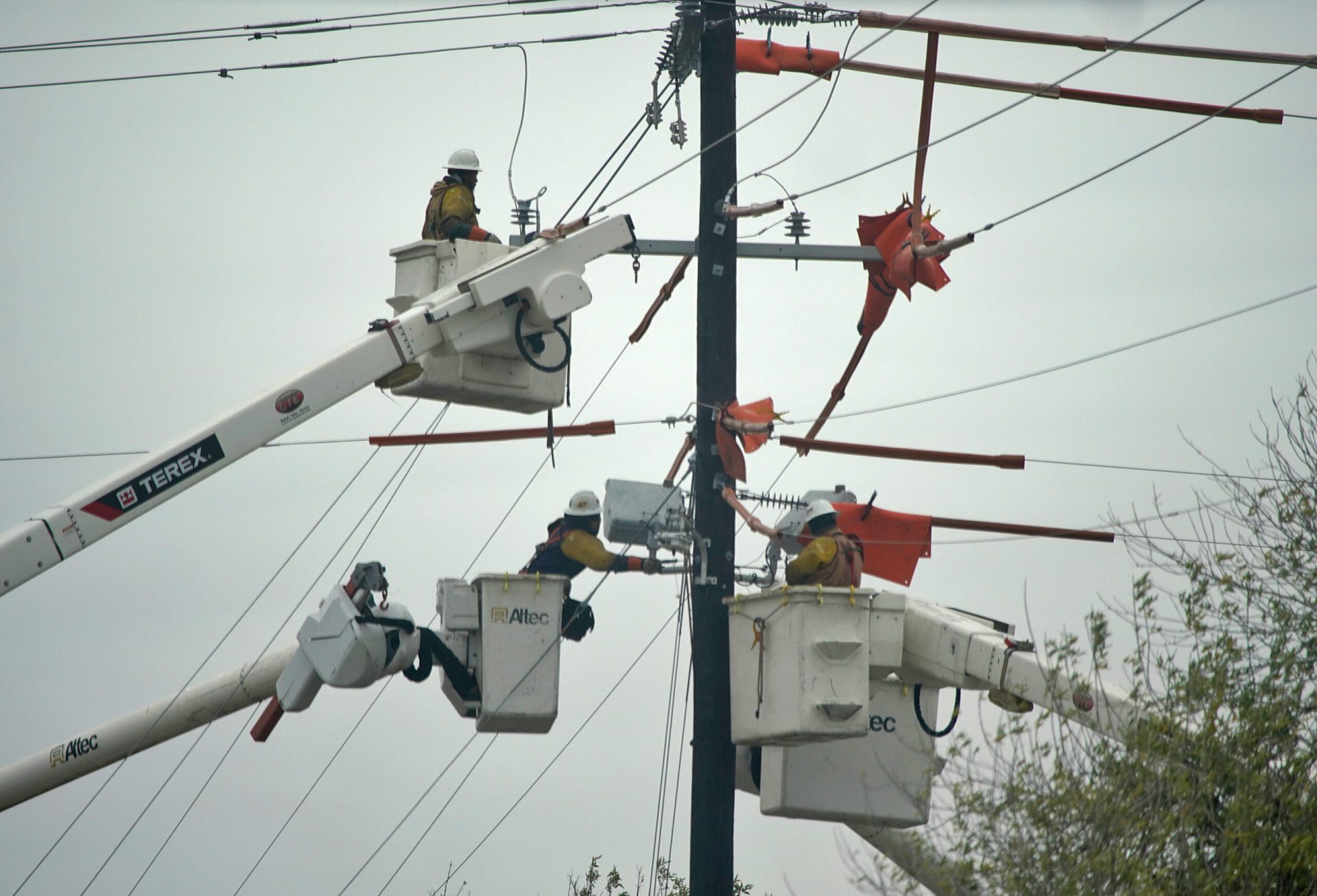
In the meantime, customers are asked to keep their distance from any downed power lines, and to report them by calling (866) 223-8508.
Like Cortez, AEP Texas reminded residents to “have a backup plan” for those with medical equipment relying on electricity in case of “extended” outages.
“We will do everything possible as quickly as safely possible; however, we cannot guarantee how long restoration may take,” the release read. “The Electric Reliability Council of Texas and AEP Texas are not requesting energy conservation at this time. That said, it is always a good approach to practice energy efficiency measures, such as lowering the temperature on your thermostat a few degrees, or even consider wearing (a sweater). You can save money on your electric bill while staying comfortable.”
GROWING CONCERNS
One study conducted by the Texas A&M AgriLife Extension Service estimated that the state’s citrus industry suffered $230 million in damages due to the February 2021 freeze.
Memories of crops encased in ice, dripping with icicles in the harsh aftermath of last year’s front, are not dormant in the minds of farmers.
This year, growers began preparing for severe weather early on. North of Hargill, for instance, dozens of acres of young citrus trees have been under cover for several days.
Mani Skaria, Ph.D., who serves as professor emeritus in the A&M system and is also CEO of U.S. Citrus in Hargill, said there’s little that can be done to combat freezing temperatures, other than irrigating.
But Skaria also doesn’t feel that there is too much cause for concern since temperatures are expected to hover just above freezing.
“For this particular weather event, we look at how low the temperature will go down, and if it is in the upper 30s, we turn the water on to begin irrigating,” Skaria said of citrus growers’ preparations ahead of cold temperatures. “Basically, there is nothing much you can do other than turning the water on outside in the orchard.”
For Bret Erickson, senior vice president for business affairs for Little Bear Produce, a large outdoor packer and shipper of fresh vegetables in the Valley, harvesting and packing may represent greater concern.
“A lot of times our crops can withstand that without serious damage,” Erickson said, echoing Skaria’s sentiments. “Things we are doing in preparation for this cold weather? The main thing is watering the ground for some young crops. This may seem counterintuitive but it helps insulate and warm the ground and prevents it from falling below freezing. Weather like this, the biggest implication for us … it really slows down our harvest process.”
Little Bear Produce farms thousands of acres of vegetables in the Valley, making it difficult to apply physical coverings to crops. It’s been done for melon transplants, but as watering remains one of the primary sources of preparation for severe weather, concerns remain with the packaging and shipping operation due to rainy or icy conditions slowing the process down.
There is, however, cause for optimism.
“These cold fronts, as they come in, actually tend to harden up the vegetable crops that grow here, where it strengthens them and makes them hardier, and better able to stand up to these cold fronts that come through,” Erickson said. “When you look at last year, that was a really catastrophic freeze event for all the Valley growers, citrus and vegetables, because we got to the low- to mid-20s for several days for long stretches of time, and it’s impossible for these plants to survive those temperatures.
“But there is conditioning, and we feel pretty comfortable that other than a slow down with the harvest and packing activities, there’s no real serious risk of potential losses in the field.”

